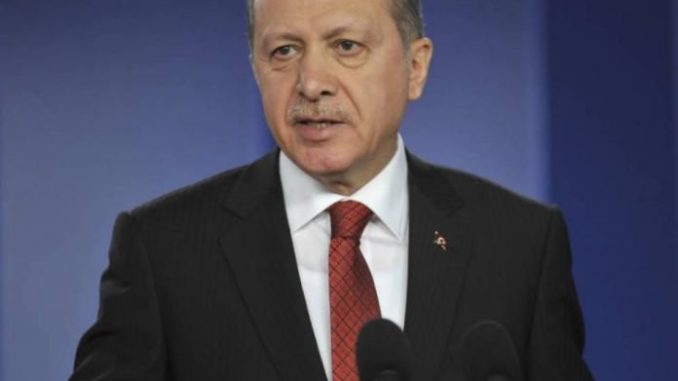
Turkey has condemned a statement by leaders of the European Union that criticised Ankara for “continued illegal actions in the Eastern Mediterranean and the Aegean Sea”, increasing tensions between Ankara and Brussels just days before a key summit.
The European Council on Thursday called on Turkey to respect the sovereign rights of Cyprus to explore and exploit its natural resources in accordance with the EU and international law.
Turkey has vowed to prevent the Greek Cypriot government from exploring for oil or gas around the divided island, claiming that some areas of Cyprus’ offshore exclusive economic zone fall under its jurisdiction or that of Turkish Cypriots.
Turkey’s navy has been blocking private drill ships hired by Greek Cypriots from entering some of the zones off the Cyprus coast, which the European Council called illegal.
“Such wordings solely based on the Greek Cypriot and Greek claims are unacceptable and create an opportunity for some other countries to hide behind them as well,” the Turkish foreign ministry said in a statement on Friday, adding the EU cannot be an objective actor on the Cyprus dispute.
Turkey’s EU Affairs Minister Omer Celik said on Twitter on European Council conclusions: “When solidarity takes over legality and equity, then no one can talk about legitimacy. Solidarity is meaningful only when it is legitimate.”
The Turkish Republic of Northern Cyprus (TRNC), which has its own parliament and state institutions, is recognised only by Turkey since it unilaterally declared independence in 1983, breaking away from the Republic of Cyprus.
Cyprus had been practically divided since 1974, when Turkey’s militarily intervened on the island in response to a brief Greece-inspired coup. Ankara said it acted in line with a treaty of guarantee signed in 1960 when the Republic of Cyprus was founded.
‘Grave concern’
The Council’s conclusions also expressed “grave concern” over the continued detention of EU citizens in Turkey, including two Greek soldiers, and calls for the swift and positive resolution of these issues in a dialogue with member states.
The soldiers were arrested on espionage charges on March 2 after entering northwestern Turkey and they have been waiting for their case to be heard.
The soldiers say they accidentally passed into Turkish land. Turkish state media reported that military sketches were found on the soldiers.
The trade of barbs come between Brussels and Ankara comes only days before a summit between EU President Donald Tusk, European Commission chief Jean-Claude Juncker EU and Turkish President Recep Tayyip Erdogan on March 26 in Varna, Bulgaria.
The meeting will discuss how to move the relationship between the two sides forward, on the basis of mutual respect and common interests.
“[The EU and Turkey] will assess matters of mutual interest and recent developments in Turkey, including in the area of rule of law and fundamental freedoms,” a statement by the European Council, the primary legislative institution of the EU said.